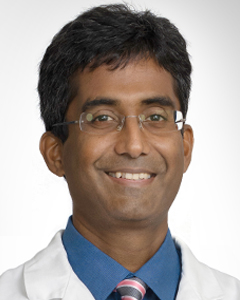Is It Time to Stop Chemotherapy?
We often talk about people fighting cancer—as if it is a war to be won. But sometimes, it is not so much about defeating cancer as it is about making the most of your life. According to Choosing Wisely, an initiative of the American Board of Internal Medicine (ABIM) Foundation, cancer responds best to the initial treatment. But if a tumor doesn’t respond, there’s a decreased chance that treatment will help. Choosing Wisely suggests that if you’ve had three different treatments and the cancer has grown or spread, more treatments are not likely to be effective and can cause side effects that shorten your life and decrease its quality.
When faced with this dilemma, you may wonder if you should continue chemotherapy. Before making such a difficult decision, here are some questions to consider.
What does your medical team recommend? As humans, we are hardwired to hold onto hope, so if your oncologist suggests that additional chemotherapy treatment will not be helpful, it is very hard to hear. Find out how advanced the cancer is and how much it has spread. What is your prognosis with and without treatment?
If continued treatment is painful, ineffective and decreases the quality of your life, it may be best to focus on symptom-focused care. Of course, you may want to get a second opinion before deciding, but it is helpful to approach this decision with as much clarity as possible.
What can you expect to happen as you approach end of life? Thinking about dying can be frightening, particularly because of the unknown. Talk with your medical team about what to expect if you end treatment and what to expect if you continue. What type of pain might you have? How much fatigue? Will you be aware of these changes? What is the estimated time frame for these changes happening? What kind of help will you need/have during this time? By knowing what to expect, you can reduce some anxiety and feel more confident about your decisions.
What pain management options are available? If you decide to stop chemotherapy and focus instead on symptom-focused care, what types of medicines are available to you and what can you anticipate experiencing on them? Some medicines are long-acting, time-released formulas, while others are fast-acting rescue drugs to quickly control pain. Many formulas allow you to control the dosage so you can stay comfortable. As you think about how you’d like to spend your time, talk with your medical team about what types of medicine can help you control pain and stay comfortable.
What type of family support will you have? Sometimes people view the decision to stop chemotherapy as a sign of giving up, when instead, it may be the best choice available. Will your family and friends be supportive of you and your decision? If they are resistant, perhaps enlist someone from your medical team to talk with them about your decision and what your loved ones can expect as well.
What kind of supportive care is available? Ending chemotherapy doesn’t mean ending all treatment. You can still use a variety of care that minimizes symptoms so you can feel good for as long as possible. You may consider hospice care, which provides physical, mental and spiritual care, and can be in your home, hospital, hospice facility, skilled nursing or assisted living location.
The decision to end chemotherapy can be hard, but depending on your individual circumstances, it may help you “win the war” by making the most of your time.
Are You Interested in Learning More About Our Cancer Services?
Orlando Health Cancer Institute's specialized multidisciplinary approach means each patient benefits from the expertise of a team of professionals including medical, radiation and surgical oncologists, pathologists and radiologists, nuclear medicine doctors and advanced practice nurses, along with support staff such as social workers, counselors, dietitians and pharmacists.
Learn More





